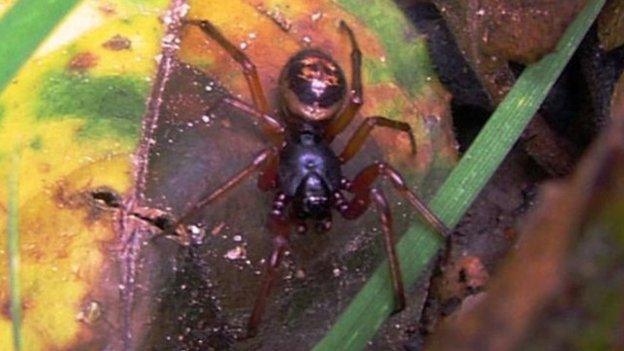False widow spider bite leaves Barry woman in hospital
- Published
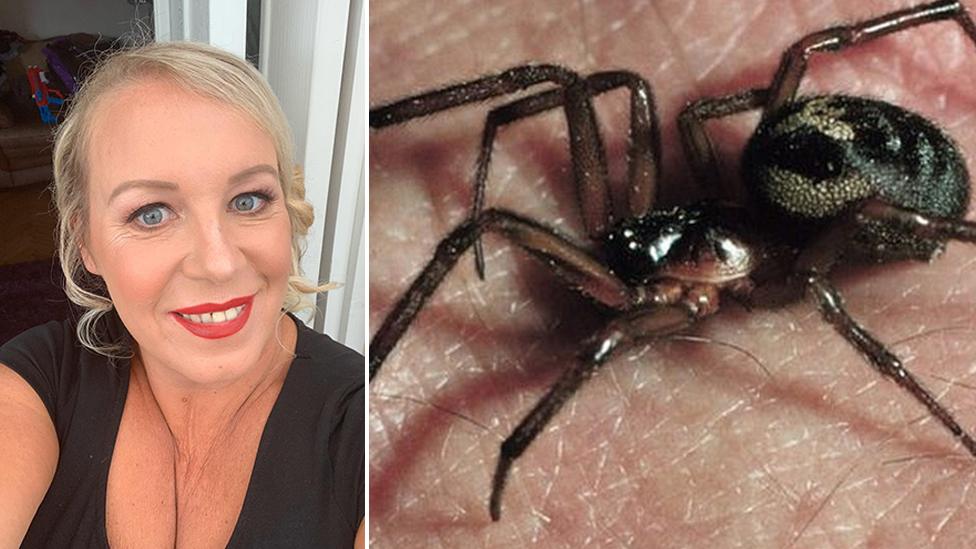
Louise Edwards was bitten by a spider matching the description of a noble false widow
A woman has undergone surgery after being left seriously ill when she was bitten by a spider hidden on a cushion.
Louise Edwards, 49, was bitten by the arachnid, thought to be a false widow spider, at her home Barry, Vale of Glamorgan.
The painful abscess swelled to the "size of a bar of soap" and came close to going septic, medics told her.
"I was only scared when the hospital staff mentioned sepsis - people die from that," she said.
Now she is raising awareness of the dangers of such bites with autumn typically the mating season for spiders.
Ms Edwards was first bitten in August when she was clearing out the summerhouse in her garden. The spider was on a cushion she was carrying under her arm.
After initially brushing off the irritation, the bite swelled to the size of a golf ball and had to be cut out by doctors.
She thought nothing more about it and even ran the Cardiff Half Marathon on 9 October. However she suffered a reaction weeks later and doctors told her they believed the infection was linked to the original bite.
"Within a couple of days of seeing my GP, it had doubled in size," said Ms Edwards.
"I was told by the nurse that my infection score was up near the levels of sepsis and I should be on the floor. That's when I was really worried."
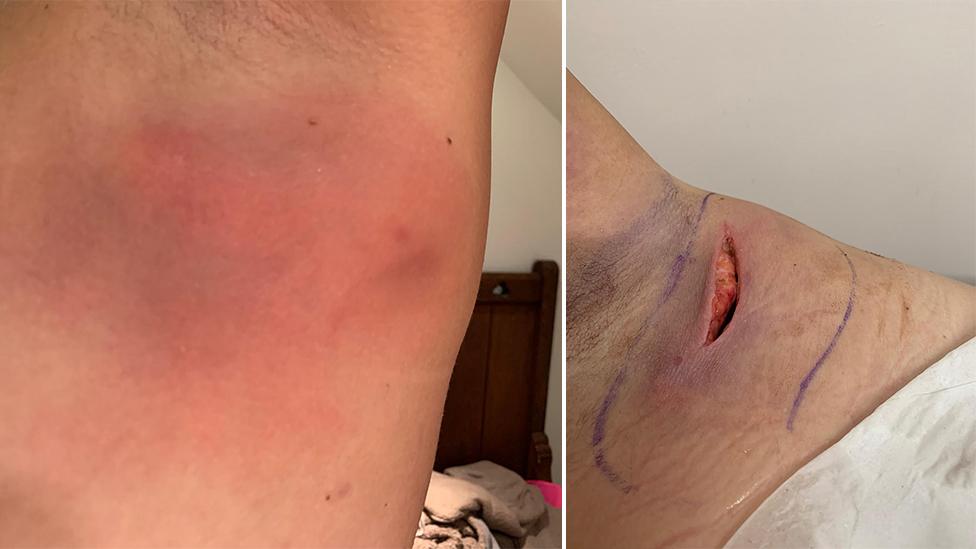
Ms Edwards developed an infection a few weeks after her bite, which then had to be cut out and drained
Ms Edwards spent two days at Cardiff's University Hospital of Wales this week and is undergoing constant care to have the open wound monitored and re-packed.
"I haven't been back in the summerhouse since. My son and I weren't keen on spiders in the first place but this has made us both even worse.
"People can't believe this happened in Barry, rather than abroad. But people need to be aware that these spiders are around and to keep a close eye on any bites."
That is particularly the case now. Late summer and autumn is "spider season" when males roam in search of a partner while females "stay put" indoors.
Four schools in east London were closed in October 2018 due to infestations of false widow spiders.
There are around 650 species of spiders in the UK
Public health experts, external say spider bites in the UK are rare and false widow bites, at worst, only produce mild symptoms which subside within a few days.
Zoologist Dr Tim Cockerill from the University of South Wales, said most remedies suggested for keeping spiders out of the house, such as putting conkers in the corner of rooms, are simply urban myths.
He added that the 650 species of spider in the UK "are only dangerous if you happen to be a fly or a small insect".

False widows - Britain's most venomous spider
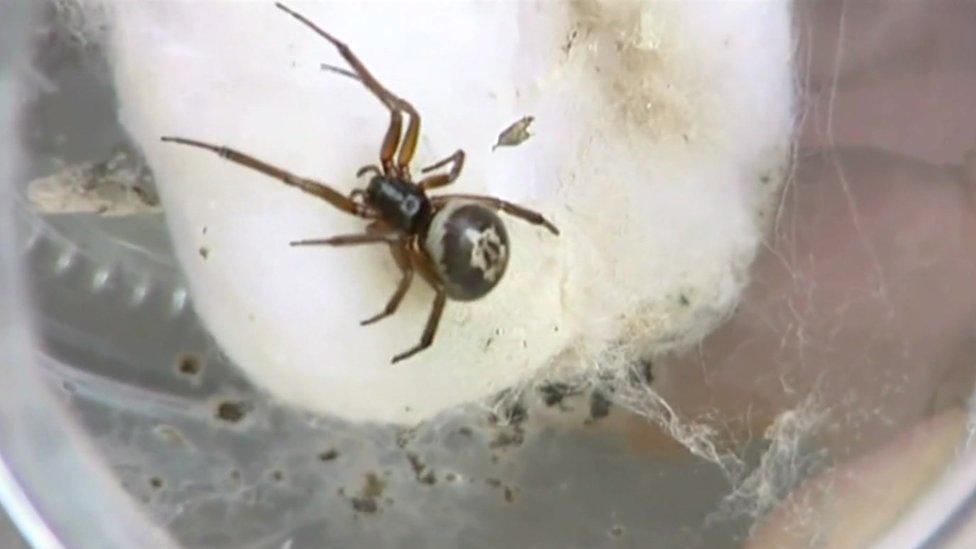
About the size of a 50p coin
Arrived in south-west England in the 1870s
It is Britain's most venomous spider, although there are no reported deaths in the UK
Has distinctive cream markings on its bulbous brown body with reddish-orange legs
Prefers warm, dark places and eats insects, invertebrates and other spiders
Source: Natural History Museum
- Published6 September 2021
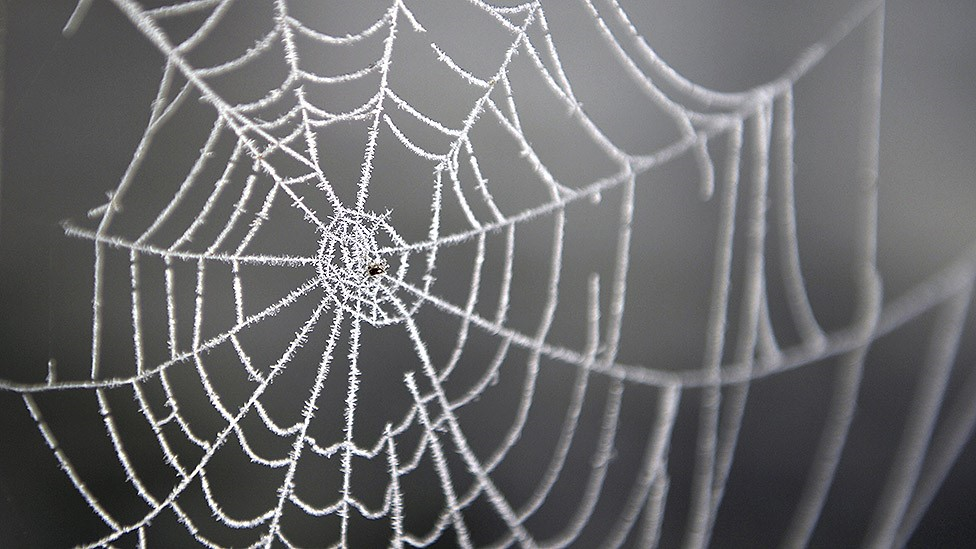
- Published11 October 2018
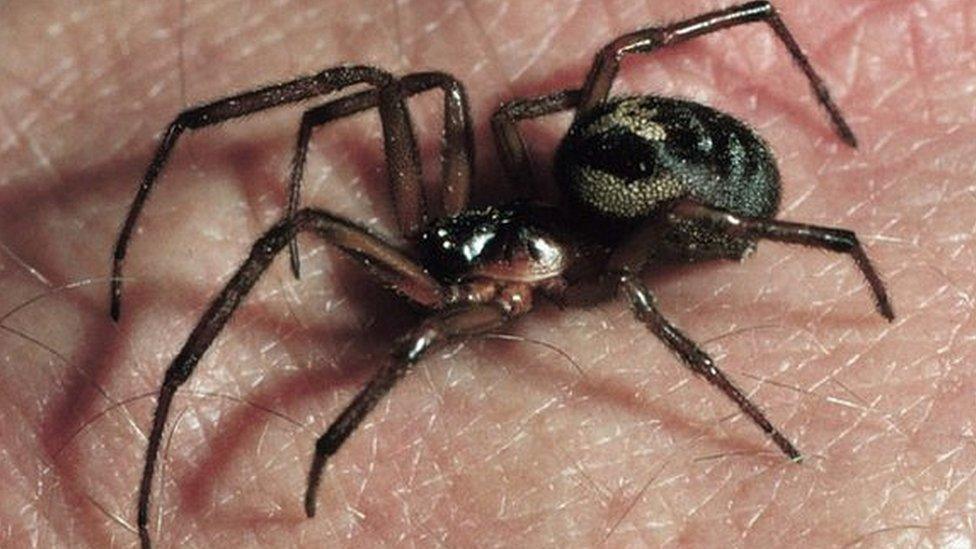
- Published7 September 2018
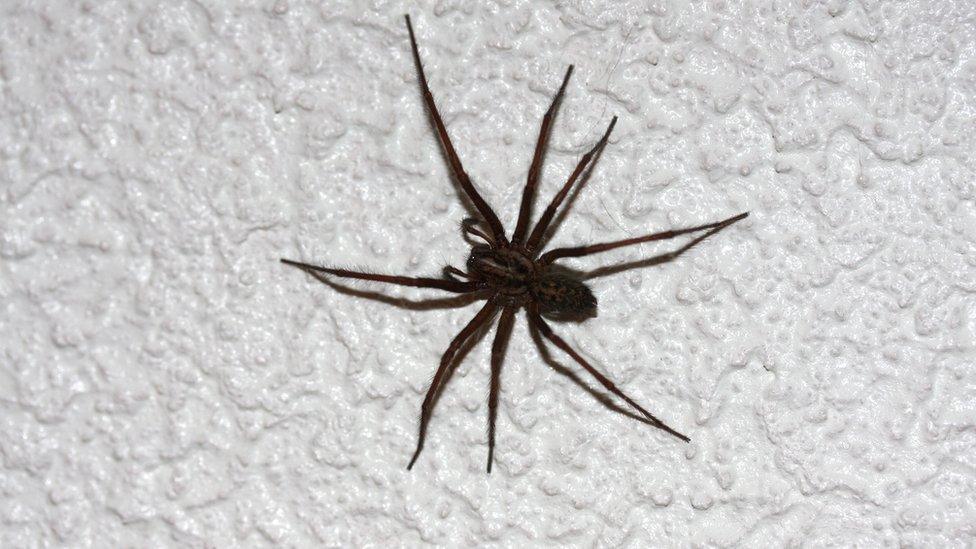
- Published18 August 2018
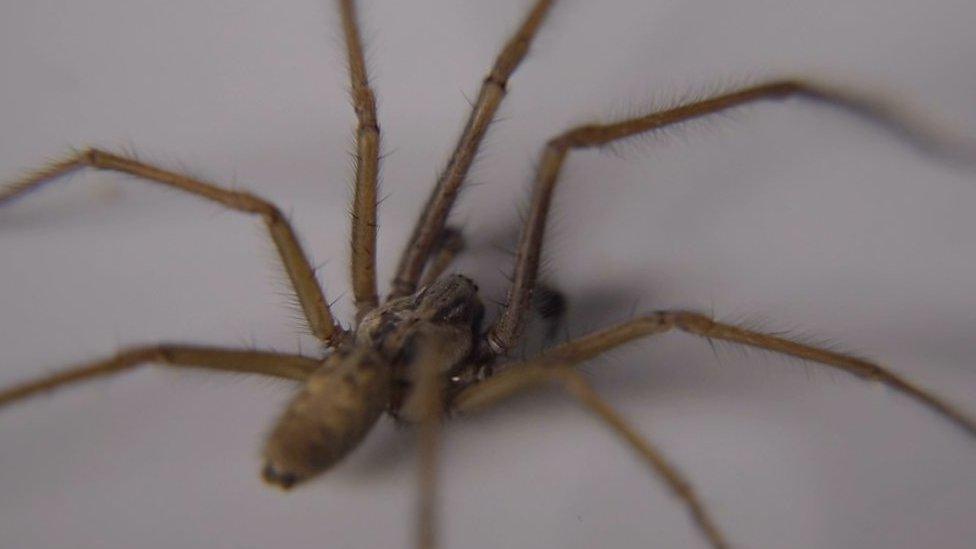
- Published8 May 2018
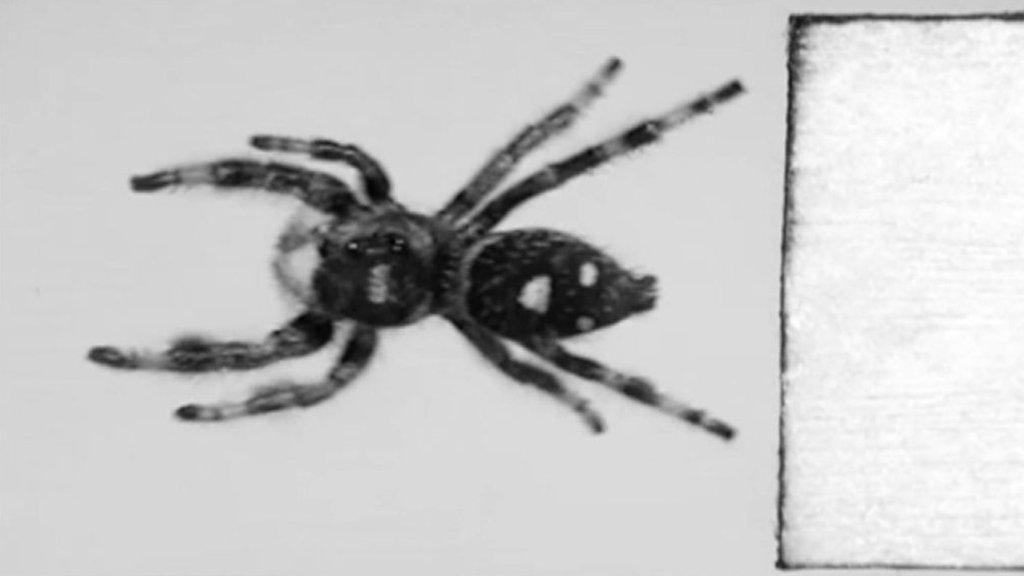
- Published5 July 2017

- Published23 October 2013
